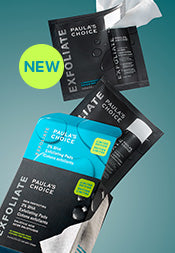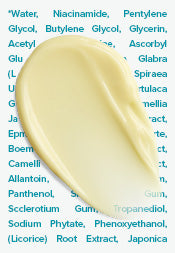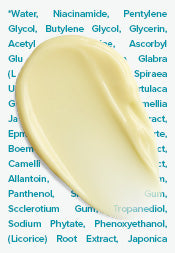Coconut Oil For Face & Skin
A Google search for coconut oil returns endless advice on how to use it for your skin. But just like everything else you read on the Internet, some of the information is factual, and some of it isn’t. The actual scientific research on coconut oil reveals a clearer picture. Here are the best (and worst) ways to use coconut oil for your skin on your face or body.
Benefits of Coconut Oil on Skin
In a nutshell (or should we say coconut shell?), coconut oil’s benefits are led by these key elements:
- It is rich in fatty acids, which replenish the skin’s vital substances to keep it looking healthy and young.
- Its antioxidant properties aid in the skin’s anti-pollution defence, while also visibly diminishing wrinkles and other signs of ageing.
- It has high saturated fat content and helps to moisturize dehydrated skin.
- It is one of the few naturally delicious smelling oils that does not have a volatile component that irritates skin—instead, it’s completely soothing.
Which Kind of Coconut Oil is Best for Skin?
Before you run out to buy coconut oil, it’s important to know which kind you should use. Unrefined “virgin” coconut oils have an advantage. They test higher in antioxidant levels than refined (bleached and “deodourised”) coconut oils. The tricky part is that there is no worldwide certification standard specifying which coconut oils can be classified as “virgin” and which cannot. Companies can then label their products as they wish.
Your best bet is to check the ingredient label and ensure no fragrances, flavours, or dyes are added, as these are always problematic for the skin.
Is Coconut Oil Good for Your Face?
Coconut oil is incredibly beneficial for dry, dehydrated skin. Its emollient properties amp up the skin’s ability to prevent moisture loss and provide nourishing hydration that softens rough, bumpy skin.
How to use: If your coconut oil is in solid form, scoop a teaspoonful into a microwavable bowl and heat it for a few seconds (but not too hot) to get a fluid, more spreadable texture, and then apply it to the skin. We strongly recommend layering it with a well-formulated moisturizer to give your skin an even broader array of beneficial ingredients. Coconut oil has good properties, but the skin is complicated and has more diverse needs than any one ingredient can address.
Coconut Oil for Shaving Your Legs
Traditional shaving gels and creams often come loaded with fragrance, which irritates the skin. Coconut oil is a soothing alternative that smoothly lubricates the skin to help avoid nicks and razor burns.
How to use: Warm it up in your hands, slather it on your skin, and then shave as normal. Bonus: Your skin will feel so much softer afterwards.
Coconut Oil as an Eye Makeup Remover
Coconut oil does a great job of breaking down tenacious mascara and inky liners.
How to use: Gently sweep it over your eye makeup, then wash your face as normal.
Coconut Oil for Acne
Here’s where we get into some serious myth-busting. Despite what you may have read or heard, there is no conclusive evidence to back up the claim that coconut oil is an anti-acne solution. In fact, coconut oil’s emollient, saturated fat components are far more likely to exacerbate acne breakouts and make oily skin feel even more oily. Don’t fall for the hype on this one; if you do, it won’t take long for you to find out for yourself how problematic this can be.
Coconut Oil for Sun Protection
This is another bust, and one that actually puts your skin at risk. Contrary to claims, coconut oil does not provide adequate sun protection for our skin. Research has shown that it screens only about 20% of UV light, which means 80% is still getting through to your skin. Skipping your sunscreen in favour of coconut oil puts your skin at risk for skin cancer and early signs of ageing such as wrinkles and pigmentation — eek!
Coconut Oil Face Wash
Some cleansing oils sold today contain coconut oil and are labelled for all skin types. What gives? Although we don’t recommend using pure coconut oil to cleanse all skin types (particularly acne-prone or very oily skin), a face wash or water-soluble facial cleansing oil such as the Perfect Cleansing Oil that contains a small amount of coconut oil shouldn’t be a problem.
Some face wash and oil face cleanser options contain emulsifiers, a type of ingredient that allows the oil to benefit the skin (smoothing, preventing dryness) but then can be washed off before it mixes with your skin’s oil and potentially clogs pores. Such formulas can be great for all skin types, even acne-prone skin, especially if it’s suffering from flakiness due to topical acne treatments.
Learn more about facial cleansers.
Shop highly effective yet gentle cleansers to get the grime off.
References for this information:
International Journal of Dermatology, January 2014, pages 100–108
Pharmacognosy Review, July-December 2011, pages 164–173
Skin Pharmacology and Physiology, June 2010, pages 290–297
International Journal of Food Sciences and Nutrition, 2009, pages 114–123












